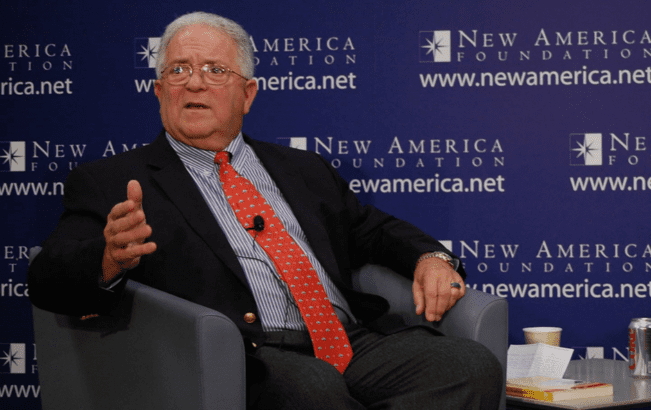The Israeli attack on the Iranian embassy was an attempt by the Netanyahu government to escalate its conflict with the Palestinians into a confrontation with Iran, hoping to draw the United States into the fray…
Ambassador Chas Freeman is a career diplomat (retired) who was Assistant Secretary of Defense for International Security Affairs from, earning the highest public service awards of the Department of Defense. He served as U. S. Ambassador to Saudi Arabia, was Principal Deputy Assistant Secretary of State for African Affairs, worked as Deputy Chief of Mission and Chargé d’Affaires in the American embassies at both Bangkok and Beijing, and was Director for Chinese Affairs at the U.S. Department of State.
Interview with Ambasador Chas Freeman, Reposted from AZ News
— What triggered the recent Iranian attack on Israel and has Iran considered its retaliatory response complete after the attack?
— The Iranian attack was a measured, largely symbolic response to Israel’s assault on its embassy in Damascus, a breach of the ancient norms of international relations, the UN Charter, and the Vienna Convention on Diplomatic Relations. Iran’s counterattack targeted facilities in the sparsely populated Negev Desert and Mount Hermon, which were directly involved in the Israeli breach of international law. Iran cited the UN Charter’s right of self-defense in mounting its attack.
— Who is better equipped for war- Iran vs Israel?
— Israel possesses the most modern and competent armed forces in West Asia. However, Iran has recently demonstrated its capability to strike Israel with drones, cruise missiles, and ballistic missiles. It reportedly gave both Israel and the United States prior warning of the attack, ensuring that all but the ballistic missiles were intercepted. Although not supported by the “axis of resistance” forces in Iraq, Lebanon, Syria, or Yemen for this reprisal, Iran and its allies have shown that they can overwhelm Israel’s defenses if necessary.
— Considering the scale of the attack and the responses by both Iran and Israel, is there a possibility that this conflict could evolve into a prolonged military engagement?
— This was a carefully calibrated warning by Iran, not an attempt to cause serious damage to Israel. It marks a departure from Iranian passivity in response to repeated violations of its sovereignty by Israel, including the assassination of Iranian military, scientific, and now diplomatic personnel. The future developments depend on Israel’s next actions. The Israeli attack on the Iranian embassy was an attempt by the Netanyahu government to escalate its conflict with the Palestinians into a confrontation with Iran, hoping to draw the United States into the fray. Iran’s restraint and the purely defensive actions of the U.S. helped prevent the broader conflict Netanyahu sought. Israel now risks direct retaliation from Iran if it continues its aggressive posture.
— How likely is it that the United States and the United Kingdom will become actively involved in this conflict given their historical alliances and recent responses to similar international crises?
— Neither Iran nor the U.S. and U.K. desire a broader war in the Middle East. While American and British political elites may still support Israel in a conflict, public opinion is increasingly opposed. The ongoing Israeli actions in Gaza and the West Bank are generating widespread and intense opposition in both countries, making further support for Israel increasingly problematic.
— What are the broader implications of this conflict on regional stability, particularly in relation to other Middle Eastern countries and global powers?
— In West Asia, we are witnessing the collapse of international law and a return to undisguised power politics, a trend that is becoming global. Israel and its supporters are accelerating this shift toward lawlessness in international relations. The United Nations is becoming collateral damage in this process, with its credibility severely undermined by its inability to address clear violations of its Charter and international law. The principle of “might makes right” is being increasingly challenged globally, leading to growing objections to the hegemonic attitudes of Israel and the West. This conflict is turning Israel into a pariah state and discrediting its Western backers, undermining their moral authority and long-standing privileged position in global affairs. They are unlikely to regain this position easily.
RELATED:
- Israeli Journalist said Israel is pushing US into war with Iran
- Israel escalates efforts to get US to attack Iran, as it did Iraq
- More Disinformation from Israel about Iran
- Israel’s Fingerprints Are All Over the Assassination of Qasem Soleimani
- Former intelligence officials: US drone attack on Iran motivated by Israel
- The Soleimani Assassination: The US is now at war with Iran
- Israel behind Pretexts for an Attack on Iran
- Israel-born Treasury official is at the center of U.S. policies on Iran
- Timeline of US-Iran conflict: 1953 through Present





